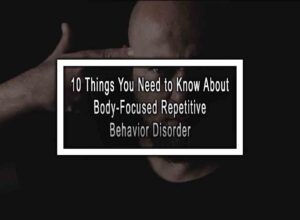Here Are Some Stress Reduction Techniques
Stress is a normal part of our everyday life, and we all experience it in different ways and at different levels. Stress can be caused by various factors like work pressure, family issues, financial problems, and even personal relationships. When stress levels get too high and we are unable to cope, it can lead to negative consequences like anxiety, depression, and physical illness. That’s why it’s more important than ever to explore and apply effective stress reduction techniques for our overall well-being. In this article, we’ll be discussing various stress reduction techniques that you can use to manage stress effectively.
Practice Mindfulness
Mindfulness is a state of being aware of the present moment without judgments. Practicing mindfulness can help you reduce stress and improve relaxation. Mindfulness meditation involves sitting in a quiet place, focusing your attention on your breath, and observing your feelings and thoughts without getting caught up in them. Mindfulness meditation can strengthen the prefrontal cortex, which regulates your emotions and reasoning.
Yoga or Tai Chi
Yoga and Tai Chi are ancient Eastern practices that have become popular stress-reduction techniques all over the world. These practices help regulate your breathing, lower your heart rate, and stretch your muscles, which can help alleviate stress. Both types of exercises can also help you focus and improve your mental clarity.
Music Therapy
Music is an excellent tool to relieve stress and promote relaxation. Soft music can help you reduce muscle tension, lower your heart rate, and calm your mind. Some people find that listening to nature sounds such as waterfalls, birds, and wind chimes can also help reduce stress levels.
Deep Breathing Techniques
Deep breathing techniques are a quick and easy way to lower your stress levels. Breathing exercises like the 4-7-8 technique, where you inhale for four seconds, hold for seven, and exhale for eight, can help calm your mind and body. Deep breathing techniques can be done anywhere without any special equipment or preparation.
Progressive Muscle Relaxation
Muscle tension is a common physical manifestation of stress. Progressive muscle relaxation involves tensing and then releasing each muscle group in your body from your toes to your head. This exercise helps you become more aware of the physical sensations of stress and helps you learn to release them.
Visualization
Visualization is a powerful way to reduce stress levels and improve focus. Visualization involves picturing a pleasant or calming image in your mind and focusing on it for a few minutes. This technique can also help you develop self-confidence, improve performance, and reduce anxiety.
Exercise
Exercise is an excellent way to reduce stress levels and improve overall health. Exercise causes your body to release endorphins, which are natural mood boosters that can help alleviate stress symptoms. Exercise also helps regulate your breathing and heart rate and reduces muscle tension.
Conclusion
Stress is an inevitable part of life, and we all experience it in different ways. However, stress can lead to negative physical and mental health consequences when it is not managed effectively. The good news is that there are many stress reduction techniques available that you can use to manage stress effectively. Mindfulness, yoga or Tai Chi, music therapy, deep breathing techniques, progressive muscle relaxation, visualization, and exercise are all effective ways to alleviate stress symptoms. By incorporating these techniques into your daily routine, you can reduce stress levels and improve your overall well-being. Remember to take care of yourself, both physically and mentally, so that you can live a happy and healthy life.
Stress Reduction Techniques FAQ
Here are the most common questions about stress reduction techniques.
How often should I practice stress reduction techniques?
It is recommended to incorporate stress reduction techniques into your daily routine. Depending on the technique, it can be as little as 10 minutes a day or as much as an hour. The key is to practice consistently and make it a habit.
Can stress reduction techniques be used in the workplace?
Yes, stress reduction techniques can be very useful in the workplace to manage stress and increase productivity. Some techniques that can be used at work include taking short breaks, deep breathing exercises, practicing mindfulness, and organizing your workspace.
Can stress reduction techniques help with anxiety and depression?
Yes, stress reduction techniques can be helpful for managing symptoms of anxiety and depression. Techniques like meditation, yoga, and deep breathing can help reduce anxiety symptoms, while exercise and spending time outdoors can have a positive impact on mood.
Are there any potential side effects of stress reduction techniques?
There are generally no negative side effects of stress reduction techniques, but it is important to ensure that you are practicing them correctly and not overdoing them. If you have any medical conditions or concerns, it is always a good idea to consult with a healthcare professional before beginning any new stress management techniques.
More like this: 5 Meditation For Anxiety












